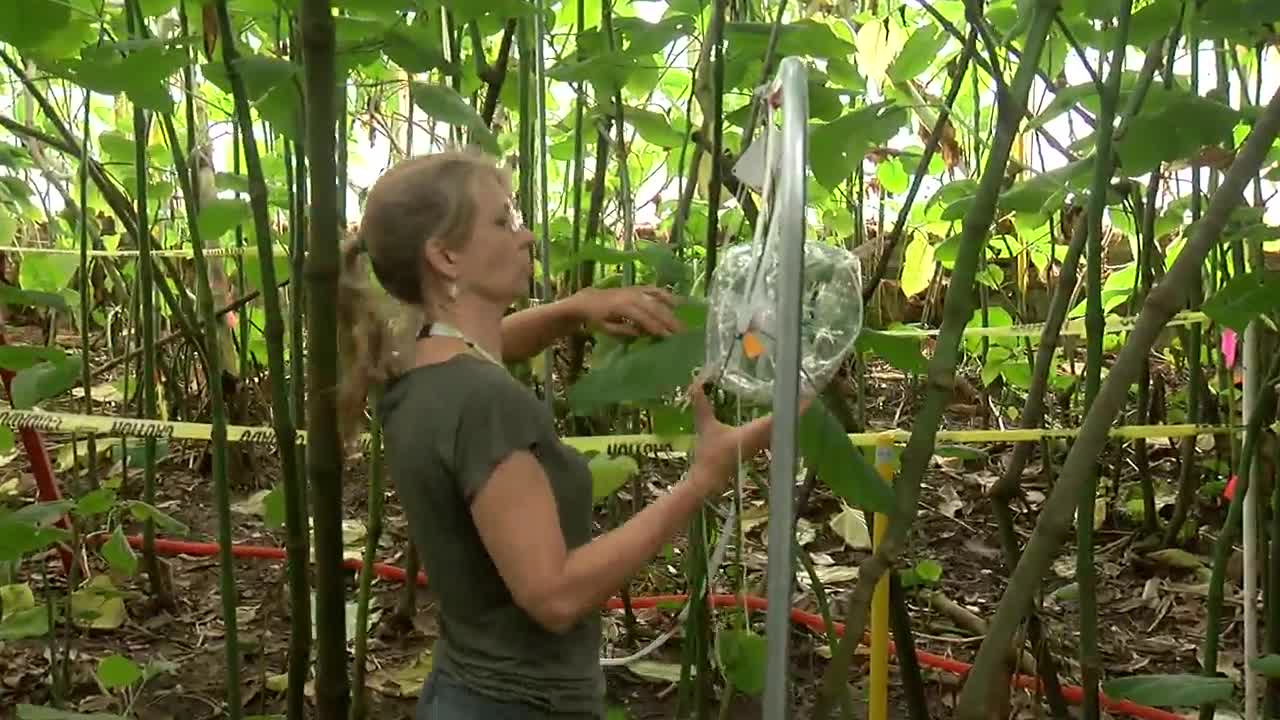ORACLE, Ariz. — A drought is about to descend on the rain forest at the University of Arizona’s Biosphere 2. It’s a four-month project studying how tropical ecosystems react to a hot and dry shift in the climate. It is part of an experiment known as Water, Atmosphere and Life Dynamics made possible by a $2.1 million European Research Council Grant.
The rain forest section of the biosphere has been a growing and stable ecosystem for decades.
“This is worldwide the only place I know where you can study a whole ecosystem and manipulate it,” said researcher and Freiburg University professor Christiane Werner.
Researcher Christiane Werner says it's a miniature version of one of earth's most important biomes.
“We also monitor how strong the carbon uptake of this forest is,” she said. “And we know that the tropical rain forests in the Amazon are like the lungs of our planet.”
Soon scientists will plunge the jungle into a drought. They want to see how the tropical plants react to the stress of a changing climate.
“How do the plants, with the roots, and the microbes change, because if you change one thing it’s like a cascade, it can change many other things,” said Werner.
Werner says the rainforest's lung capacity will likely lower in a drought. Meaning it won't be able to filter as much carbon. They'll also be measuring compounds released by the plants.
“It seems to be a protective mechanism, but it could also be a stress response, it can also be a communication between plants so they use that to communicate when stress is kicking in.”
Werner says any human interaction could throw off their results. The rest of the biosphere will be open, but the rain forest section will need to be closed to the public for the experiment.
“This is the knowledge I think we need to be able to forecast what's going to happen with these droughts on our ecosystems,” said Werner.



